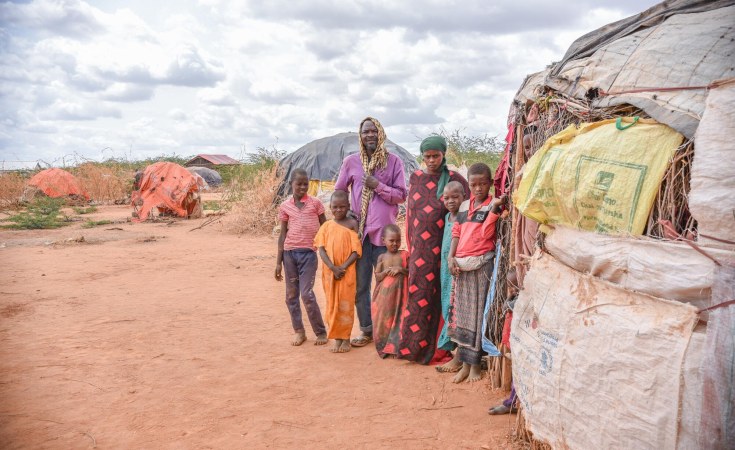Geneva — Human rights experts warn the always-shaky security situation in the eastern Democratic Republic of Congo is deteriorating further, as armed violence by Congolese and foreign forces battling for control of the region intensifies and threatens to spread throughout the country and beyond.
"As insecurity reaches some of the most alarming levels in recent years, I fear that the enjoyment of human rights in the country will come to a screeching halt," said Volker Türk, the U.N. high commissioner for human rights.
The high commissioner was one of several human rights experts who participated in an interactive dialogue on the situation in the DRC which began Tuesday and dipped over into Wednesday at the U.N. Human Rights Council.
"Since our last update to the council in October, the pervasive armed conflict, particularly in the eastern part of the country, has continued to take a heavy human toll," Türk said.
"I also remain extremely concerned about the spread of conflict and violence in the DRC throughout the region, as well as active involvement of other regional actors in eastern DRC. The cost of this situation for the population is catastrophic," he said.
A report by the U.N. Joint Human Rights Office has documented 2,110 human rights violations and abuses across the DRC between October 1, 2023, and March 15, 2024. It finds 59 percent were committed by armed groups, and includes summary executions, conflict-related sexual violence, abductions of civilians and forced recruitment of children.
"Many of these serious human rights violations could amount to atrocity crimes, and perpetrators and their accomplices must be held to account," said Türk.
During the same period, he said, the DRC's army or its proxies were responsible for violations of international human rights or humanitarian law including extrajudicial executions, arbitrary arrests and detentions, and destruction of private property.
"On several occasions, they attacked positions of the United Nations Stabilization Mission (MONUSCO)," noting that U.N. troops are slated to withdraw from the country this year at the request of the Congolese government.
He warned that "without a rapid build up of national armed forces in areas where populations depended on MONUSCO, the security vacuum could be filled by armed groups, with dire consequences for civilians."
The concerns were shared by Bintou Keita, the special representative of the U.N. secretary-general in the DRC, and the head of MONUSCO.
She deplored the worsening human rights and security climate in the DRC, particularly in the territories of Masisi, Nyiragongo, and Rutshuru, in North Kivu province. That, she said, was "due to the intensification of clashes between the M23, which is supported by the Rwandan armed forces, and the armed forces of the Democratic Republic of the Congo."
"The M23, in particular, has continued to conquer large swathes of Congolese territory, driving more than one-and-a-half million Congolese from their homes," she added.
Recurring attacks on peacekeepers and difficult access to combat zones hinder the support that the U.N. and humanitarian organizations can give to civilians in need, she said.
Congo defends end to death penalty moratorium
During their dialogue, the human rights experts expressed concern about the government's decision to lift the moratorium on the death penalty and urged Congolese authorities to reverse their decision.
That did not sit well with the DRC's minister for human rights, Albert Fabrice Puela. He told the council that his government had decided to bring back the death penalty "in order to deter all these warlords and rid our army of all treacherous soldiers who commit atrocities against the population."
"This measure of lifting the government's moratorium as well as that of the state of siege is a response to the cry of distress of the entire population who are fed up with these abuses," he said.
He spoke in detail about the progress made by the government in the promotion and protection of human rights, including in reforming the country's electoral process, the promotion of women's rights, as well as the promotion and equality of gender.
"However, all these efforts are being severely affected by the continuing situation of war imposed on us by the negative forces supported by Rwanda," he said, noting that U.N. reports and independent observers have accused Rwanda of serious crimes of human rights and international humanitarian law "as well as in the plundering of natural resources" in eastern DRC.
The DRC's president has reiterated his willingness to engage constructively with Rwanda, he said, but said that was "subject to the immediate cessation of hostilities, and the immediate withdrawal of the M23 from the occupied areas."
James Ngango, Rwanda's ambassador to the U.N. in Geneva, rejected the charges and retorted that "The situation in the Democratic Republic of the Congo constitutes a security threat in the region and to Rwanda in particular."
"Rwanda deplores the grave human rights violations against Congolese communities who are at risk of genocide in eastern DRC," he said, adding that Rwanda believes that the conflict can only "be addressed through peaceful means," not military means.
His assessment was affirmed by High Commissioner Türk, who said, "The human tragedy in the DRC will never be solved by military action alone."
"It is time to invest in dialogue. It is time to invest in restoring and rebuilding the rule of law. And it is time to invest in peace," he said.


